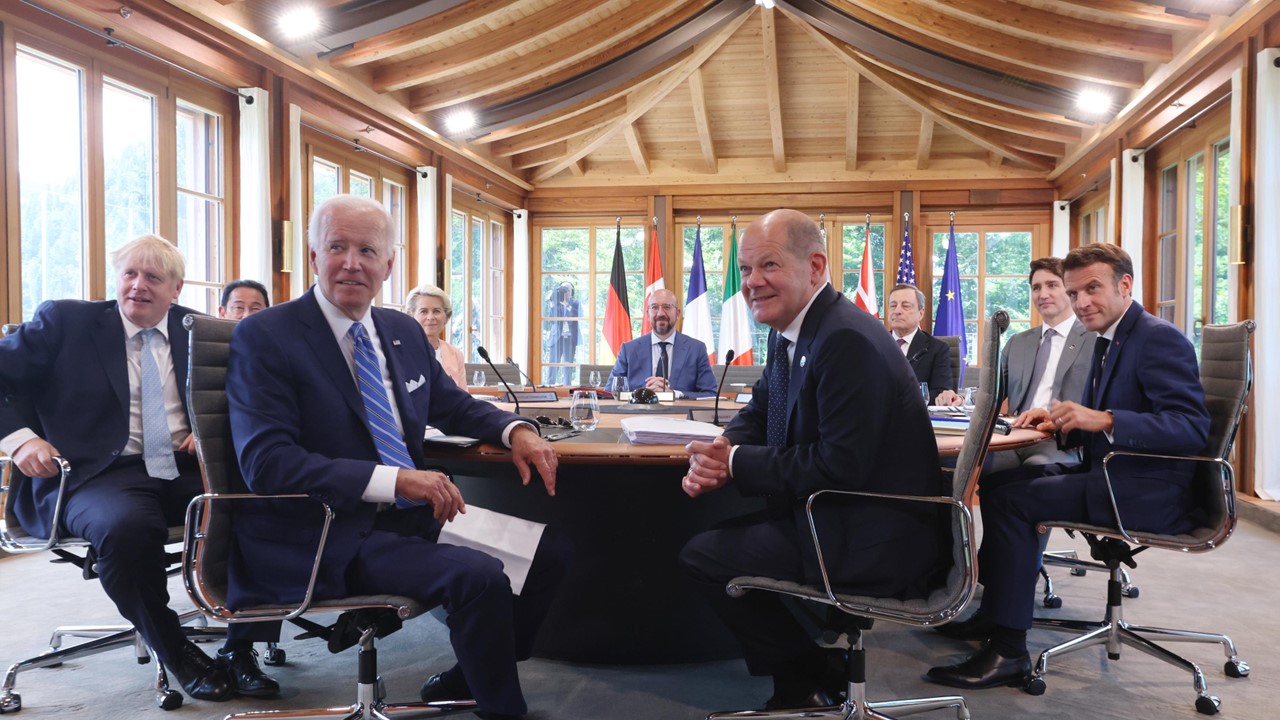Germany/Singapore - The three-day G7 summit projected its intent on keeping away from economic fallout, caused by the war in Ukraine and work towards punishing Russia’s senseless aggression. Britain’s Boris Johnson warned the leaders not to give in to “fatigue” even as Russia lobbed new missiles at Kyiv.
The Group of Seven leaders were set to announce new bans on imports of Russian gold, the latest in a series of sanctions the club of democracies hopes will further isolate Russia economically. They also were looking at possible price caps on energy meant to limit Russian oil and gas profits that Moscow can pump into its war effort.
And following up on a proposal from last year’s G-7 summit, Biden formally launched a global infrastructure partnership designed to counter China’s influence in the developing world. The initiative aims to leverage $600 billion with fellow G-7 countries by 2027 for global infrastructure projects. Some $200 billion would come from the United States, Biden said.
In a pre-summit show of force, Russia launched its first missile strikes against the Ukrainian capital in three weeks, striking at least two residential buildings, according to Kyiv Mayor Vitali Klitschko.
G7 aims to raise $600 billion
G7 leaders on Sunday pledged to raise $600 billion in private and public funds over five years to finance needed infrastructure in developing countries and counter China's older, multitrillion-dollar Belt and Road project.
U.S. President Joe Biden and other G7 leaders relaunched the newly renamed "Partnership for Global Infrastructure and Investment," at their annual gathering being held this year at Schloss Elmau in southern Germany.

Europe will mobilize 300 billion euros in private and public funds over five years to fund infrastructure in developing countries as part of the G7's drive to counter China's multitrillion-dollar Belt and Road project, European Commission President Ursula von der Leyen said on Sunday.
"It is up to us to give a positive and powerful investment impulse to the world to show our partners in the developing world that they have a choice and that we intend to step up in solidarity to meet their development needs," von der Leyen said at a news conference alongside the leaders of Germany, Italy, Canada, the United States and Japan.
Biden said the United States grant of $200 billion will be in the form of federal funds and private investment over five years to support projects in low- and middle-income countries that help tackle climate change as well as improve global health, gender equity and digital infrastructure.
Oil extends gains ahead of G7 discussions on Russian exports
Oil prices extended gains on Monday as investors stood on guard for any moves against Russian oil and gas exports that might come out of a meeting of leaders of the Group of Seven (G7) nations meeting in Germany.
The prospect of more supply tightness loomed over the market as western governments sought ways to cut Russia's ability to fund its war in Ukraine, even though G7 leaders were also expected discuss a revival of the Iran nuclear deal - which might lead to more Iranian oil exports.
Producer nations in OPEC+, which includes Russia, will likely stick to a plan for accelerated oil output increases in August when they meet on Thursday, sources said.
But, for now, the pressing supply worries outweighed growing concerns over the potential for a global recession following a string of downbeat U.S. economic data.
G7 leaders debate fossil fuel investments
Some of the leaders of the G7 rich democracies are pushing for an acknowledgement of the need for new financing for fossil energies investments, two sources told Reuters on Sunday, as European states scramble to diversify supplies.
Delegations at the annual G7 summit are debating whether such an acknowledgement can be made compliant with a commitment some countries made at the COP26 United Nations conference to halt financing for international fossil fuel projects by the end of 2022.
Italian Prime Minister Mario Draghi, whose country is also reliant on Russian supplies, said publicly on Sunday that there are short term needs for investment in gas infrastructure "in developing countries and elsewhere."
One of the sources said German Chancellor Olaf Scholz - the G7 chair - put the issue of new infrastructure on the leaders' agenda and discussions are ongoing on whether to include it in the final statement of the meeting.
-Reuters/Ap